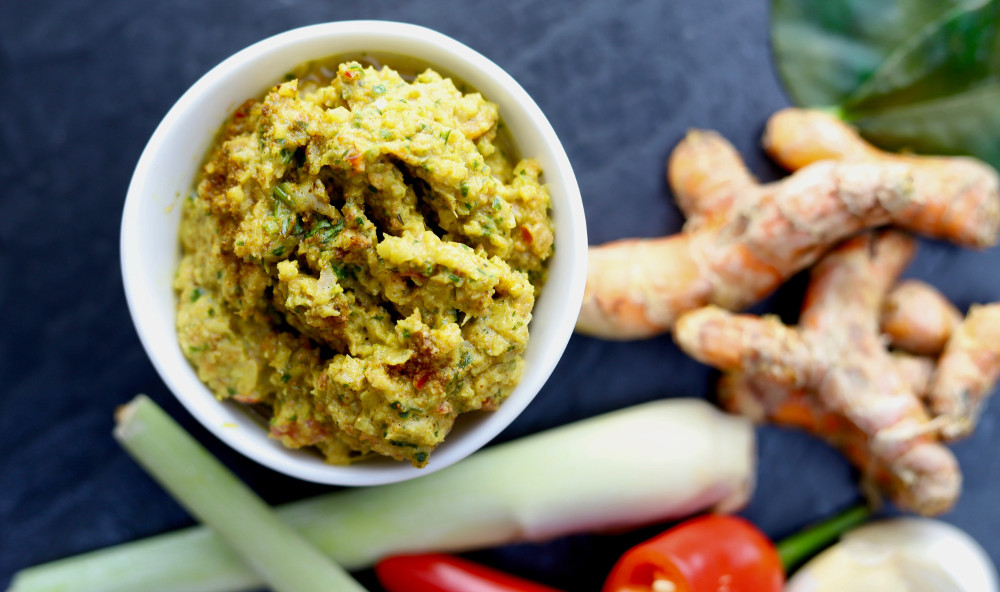
Great immune boosting foods to try now
Nutrition coach Caroline Haigh reveals the top immune boosting foods we need in our diet
Supporting your Immune system
Now more than ever it is vital to keep your immune system in tip top shape so it is in optimum condition to fight off any illness or infection. Many of us are now based at home and without the daily commute may have gained a bit of extra time – use it to look after yourself and your family. Remember that every time you eat, you have the power to nourish your body and keep that army of immune cells strong and ready for battle.
The best way to do this is to enjoy a varied, nutrient-dense diet based around ‘real’ whole foods that are as close to nature as possible. These foods will provide our bodies with all the key nutrients required to keep every cell in the body in peak condition. If you were fighting a war, you would cherish your soldiers, keeping them fit and healthy and it’s no different for the immune system – our white blood cells are our inner army so nourish them.
Equally, try to reduce or avoid foods that can cause damage to the immune system such as over-processed foods and simple sugars (fizzy drinks, sweets, sweetened cereals and white products such as pasta, rice, flour). Try to swap white for wholegrain – include oats, brown rice, wholegrain pasta for example. These complex carbohydrates are slow to digest and will offer a drip feed of energy rather than surge of sugars than is inevitably followed by a dip. Continued high blood sugars or fluctuations in blood sugars can cause inflammation that suppresses the functioning of the immune system.
I know certain foods are tricky to find in the shops at the moment but try to focus on looking for a variety of fruits and vegetables, oily fish, good quality meat and whole grains. Maybe use this time as an opportunity to try out some new and quirky ingredients. Please do get in touch with me info@everydayhealthycooking.co.uk (www.everydayhealthycooking.co.uk) if you need any recipe inspiration.
Nutrients all work together to ensure our bodies work optimally but here are a few key nutrients that are particularly beneficial for a robust immune system, some will be very familiar, others less so.
VITAMIN C – We all reach for vitamin C when a cold looms but do you know why? Vitamin C is a powerful anti-viral nutrient used by the white blood cells to help destroy pathogens and infected cells. Scientific studies have show that it can decrease the duration of a cold or infection. Vitamin C is water soluble so does not store in the body, you need to top up your vitamin C daily to keep levels high.
Foods: sounds like a cliché but ‘eat the rainbow’ and it’s not just oranges that contain vitamin C; include red peppers, broccoli, cauliflower, spinach, leafy greens, kiwi.
ZINC – this is vital for supporting the immune system. As well as being antimicrobial, zinc is used by our white blood cells to strengthen the way in which our immune system fights any pathogens they encounter. Zinc has performed well in clinical trials showing that it reduces the severity as well as duration of colds and upper respiratory tract infections.
Foods: shellfish, eggs, pumpkins seeds, cheese, nuts
VITAMIN D – the sunshine vitamin
Vitamin D receptors have been found on the surfaces of many immune cells, showing that it is vital for the functioning of the immune system. It can reduce inflammation and increases the production of antimicrobial proteins. Vitamin D deficiency is linked to a compromised immune system.
Foods: as well as enjoying the spring sunshine include full fat dairy products, mushrooms, eggs and oily fish.
VITAMIN E
This is a fat soluble nutrient that acts as a powerful antioxidant so protects cells from damage and helps the body fight infection. The body uses vitamin E to regulate immune function. Foods include nuts and seeds, salmon, leafy green vegetables.
POLYSACCHARIDES
These are specialised sugars that exist in certain foods and can have amazing benefits for immunity. They have been shown to increase the production of white blood cells (our immune system’s army), and their response to pathogens or damaged cells. Just a small amount of these compounds daily can really give the immune system a bit of a kick – making it ready to attack any pathogen. Foods include mushrooms especially shiitake and maitake, as well goji berries.
PROBIOTICS AND PREBIOTICS
Gut health and immunity are closely linked as 70% of our immune cells are found in the lining of our gut wall. The trillions of gut bacteria that live in our colon have hundreds of functions, one of which is regulating the immune system to keep it strong and in a state of balance. Supporting your gut bacteria by eating probiotic and prebiotic foods will ensure the immune cells of the gut wall are protected and primed to fight off invaders.
Probiotics are the foods that contain the good bacteria such as plain yoghurt, kefir and other fermented foods such as sauerkraut and kimchi. Prebiotics the non-digestible fibres on which the bacteria feed. Ensuring you have adequate fibre in your diet will help stimulate good bacteria and strength your immune system. Foods such as artichokes, asparagus, leeks, onions, garlic and bananas are good prebiotics.
The best way to look after your gut is to increase the amount of fibre in your diet so aim for at least 7 portions of fruit and vegetables a day (variety is important) and include complex whole grains such as oats and quinoa.
SELENIUM
This mineral is the precursor to one of our bodies most powerful antioxidants called glutathione. Antioxidants protect our cells from damage, which reduces inflammation and enhances immunity. Clinical trials have proved that selenium can be a powerful support to the immune system.
Foods include Brazil nuts, brown rice, chicken and mixed seeds.
Immune Supporting Prawn Curry
Serves 4
A versatile and simple curry packed with powerful antibacterial and antiviral garlic and ginger along with juicy prawns that are a rich source of zinc, a mineral that strengthens immune cells to fight infection.
Curry paste:
2 shallot onions, peeled and halved
1/2 or 1 chilli, chopped
1 inch piece of ginger, peeled
2 cloves garlic, peeled
1 inch piece of fresh turmeric
1 stick lemongrass, sliced
1 tbsp tomato puree or 6-8 fresh cherry tomatoes
1-2 tbsp mild curry powder (or 1/2 tsp each of ground cumin and ground coriander)
Handful of fresh coriander
1 tbsp coconut oil
Salt & black pepper
For the curry:
500g raw prawns (frozen is fine)
1 can coconut milk (or full fat plain yoghurt)
Juice of 1 lime
Small bag fresh spinach
Lime, toasted flaked almond and fresh coriander to serve
For the curry paste, place all ingredients in a food processor and blitz until a smooth paste forms. Add some water if it seems too stiff.
Place the paste in a heavy based pan and fry gently for about 10 minutes until the flavour is released.
Add the coconut milk and simmer for about 15 minutes. Then add the lime juice, spinach and prawns and simmer until the prawns turn pink. Serve with brown rice and topped with toasted almonds and fresh coriander.
Chef tips:
- Add fresh spices – toast cumin seeds, coriander seeds, fenugreek seeds, mustard seeds and peppercorns. Grind in pestle and mortar.
- Instead of prawns use chicken or salmon or even add some mushrooms and roasted sweet potatoes.
- Store the curry paste in a jar in the fridge. It will keep for around 2 weeks.
Nutritional benefits:
- Turmeric: the spice of the moment finding itself in everything from lattes and curries! It contains curcumin that is a powerful antioxidant and has seen to ease inflammation in scientific studies. It’s important to pair turmeric with black pepper and a source of fat as these help with the curcumin absorption.
- Garlic & ginger – both amazing anti-bacterial, anti-viral and anti-inflammatory agents, both are fabulous for supporting the immune system.
Caroline Haigh is a Nutrition Coach & Bespoke Caterer
info@everydayhealthycooking.co.uk
Everyday Healthy Cooking@everydayhealthycooking
www.everydayhealthycooking.co.uk
Your Undercover Cook (Catering)
More on wellbeing: how to stay well, mentally and physically
References:
- Hemilä H, Chalker E. (Jan 2013) Vitamin C for preventing and treating the common cold. https://www.ncbi.nlm.nih.gov/pubmed/23440782
- Prasad A S (2008) Zinc in human health: effect of zinc on immune cells. Molecular medicine (Cambridge, Mass). https://www.ncbi.nlm.nih.gov/pubmed/18385818
- Barbara Prietl, Gerlies Treiber et al (2013) Vitamin D and Immune Function. https://www.ncbi.nlm.nih.gov/pmc/articles/PMC3738984/
- Peter R Hoffman and Martha J Berry (2008) The influence of selenium on Immune responses https://www.ncbi.nlm.nih.gov/pmc/articles/PMC3723386/
- Has, Q, Lu Z et al. (2011) Probiotics for preventing acute upper respiratory tract infections. https://www.ncbi.nlm.nih.gov/pubmed/21901706
- Alarçon P, Gonzalez M, Castro E (2016) The role of gut microbiota in the regulation of immune response https://www.ncbi.nlm.nih.gov/pubmed/27661555
IMAGE CREDIT: Tania Ahearne Photography






